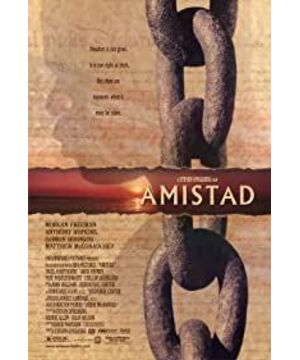In conjunction with Linda’s "I also have a dream", you can learn more about the historical background of the film, the opposite attitudes towards slavery from the north and the south, and a deeper understanding of the power of human introspection and the importance of Christianity to Americans. Just as the "Declaration of Independence" said: "All human beings are created equal, and the Creator has given them a number of inalienable rights, including the right to life, the right to freedom, and the right to pursue happiness." Under the leadership of this spirit of freedom and equality, the North’s temporary compromise with the South’s slavery is destined to cast a shadow over the Declaration of Independence. The anti-slaver’s challenge to justice is a contest between humanity and inhumanity, and even more so. Field self-revolution. There is a very good scene in the film. When former President John Adams, as an ordinary lawyer, stood in the Supreme Court to defend the blacks of the Amistad, he stayed at one of the founders of the United States-that is, his father-John Adams. In front of the statue, at this moment, generations of people's pursuit of abolition of slavery, equality and freedom is condensed on the former president, showing the glory of human nature. But as for the film as a whole, the narrative is mediocre, the emotional expression of the characters is blunt, and the ending of the Southern and Northern Army's war scenes looks very trivial, so one star is reduced for this.
View more about Amistad reviews











